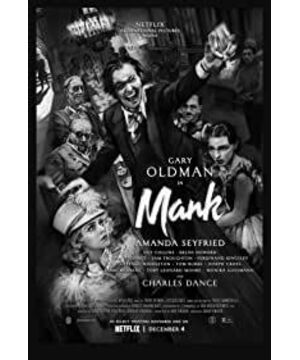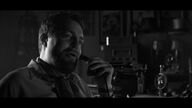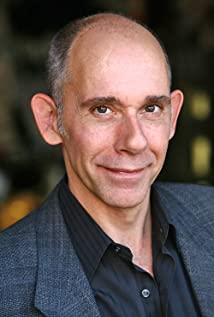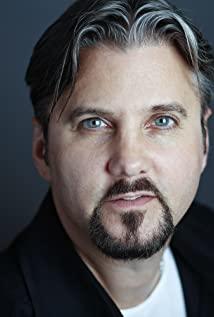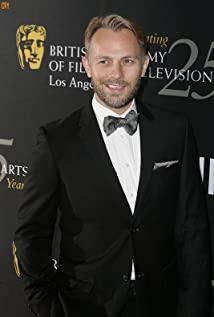Hello, everyone, I'm Little Mason. This time I want to talk about a movie "Mank" that inspired me a lot.
First, I want to ask a question. Suppose there is a person who is very important to the director David Fincher, and it is worthy of the director to recommend this person to his father to write a script for this person. At the same time, after the death of his father and the fact that no one was willing to shoot the script, he insisted on making the script into a movie. What kind of person should this person be to David Fincher?
Option 1, this person is probably a useful person. Someone who could use his power to help David Fincher in his life.
Option 2, maybe this person is a bosom friend, or a person who loves David Fincher, who has supported David Fincher unconditionally, no matter what David Fincher does.
Option 3, a great person, although unable to provide the director with material help and long-term company, helped the director to find the value and meaning of his existence as a person, a person who supports the director's spiritual corner and does not collapse.
When option 3 was written, I laughed to myself, I knew I couldn't describe what I wanted to express. Even once written, it becomes a very inconspicuous summary paragraph in chicken soup literature, or an excerpt of good deeds. So I want to try to share my understanding of the film Mank, explain what I understand Mank, and what Mank means to director David Fincher.
Like Citizen Kane, this movie is a story about a man. But other than that, the two movies are hardly lumped together. The story of "Citizen Kane" is a film that is expressed multiple times and from multiple sides, allowing the audience to finally integrate the information about the protagonist Kane that they see. The movie "Mank" is a straightforward description of a person. Although the movie "Mank" integrates two story lines, one is that the step-by-step appreciation of the boss turns into a break. Another is that Manke wrote the story of the bigwig into a script. These two story lines, interrupted and crossed many times, contrast and explain each other. But it is essentially a very simple and easy-to-understand feature film, and some people even say it is a literary film. This makes it difficult for many fans who love the suspenseful elements of David Fincher's films to accept. Although David Fincher has restrained the elements of suspense as much as possible in his films over the past few years, and began to gradually integrate his thoughts on life, society, family and other issues, everyone still remembers the suspenseful taste of David Fincher. Son. Just like a lot of people think that Wong Kar Wai gave up love and is not Wong Kar Wai anymore. Why is such a story that gave up suspense worth David Fincher's insistence to complete it? I think this person is very important to him. It's just that David Fincher besides Mank, who is in options 1, 2, 3, or something else, we can try to talk about this movie.
The portrayal of the protagonist in biopics is often not a group portrait, but to develop a story around a single person. A very important aspect of this is not to directly discuss who the protagonist is, but to focus on the effect of the protagonist's behavior on the people around him. The difference between the protagonist and the people around him is the wonderful point of the protagonist. So let's take a look at some of the characters that appear in the movie. In addition, the reason why this inventory is very important is that there are a lot of character names in this film. With the extremely high density of dialogues being spread in front of the audience, plus the Chinese display of English names often retains the habit of multiple characters, sometimes called the first name, sometimes called the surname, sometimes called the abbreviation, sometimes called the name, sometimes called the name Calling abbreviations and names is not only confusing, but the length is confusing. Basically, it is difficult for the audience to match 100% of who the names in the film correspond to. Why has no one reformed this problem in the translation industry for so many years? When I read Harry Potter books, I had to memorize the full name in a small notebook so that I could not miss all the details. There are also comments that the film needs to be like Quentin Dustino's "Once Upon a Time in Hollywood", only the background of Hollywood can be understood. I think this kind of comment actually misunderstands "Mank", the two films have in common that they both take place in Hollywood. But it is different from Quentin's fan complex, which directly shapes the plot values. I think the spirit conveyed by Mank is very universal, and it has always been of value in social relationships over a period of time. So I chose the seven characters that appeared in the play according to the basic linear narrative of the story for inventory.
Our protagonist, Herman Mankevich, is the full name of the movie's name Mank.
The first character, William Randolph Hearst. Here I call it a boss. In addition to the protagonist Mank, in fact, the man who runs through Mank in this film is this big guy. At the beginning of the movie, Mank goes home drunk. It can be seen that although Mank always attends various high society banquets, he can see his situation from a few lines of dialogue when his wife helps him take off his coat. This scene explained that Manke likes to gamble, and is out of tune with the style of Hollywood. He wants to be recognized by people and wants to integrate into the society, but he can't find the opportunity. The turning point of the story is that after an accidental drunken trip to someone else's house, after waking up, he went to the studio where the big shot made a movie for his girlfriend.
The second character, Marion Davis. Big guy's girlfriend. In his spare time when the boss made movies for his young and beautiful girlfriend, Manke used himself and his witty, pun-like chatting method to win the favor of the boss and his girlfriend at the same time. Soon Manke was on the rise, and his career as a screenwriter was booming. The relationship between Manke and the big guy's girlfriend is more than just a courtesy between ordinary friends, and it begins to feel like a bosom friend.
The third character, Louis B. Mayer, the boss's follower, is also the boss of MGM. Mank's favor in the boss's house made the follower who ignored him suddenly change his attitude. This follower, who owns and manages a big studio called MGM, is a duplicitous person. Leaving aside the capitalists in the theoretical system, he can fool employees into taking pay cuts and please his own leaders at the same time. He is an out-and-out egoist. And from someone wiping his sweat before giving a speech, the fake cry at the funeral of his subordinates, and the choking of emotions brewing before every speech, this person is very similar to those leaders who are often seen in our lives with poor acting skills. This kind of person is not only hypocritical, but also ignorant. He treats the German war mentioned in this film. Although this follower does not know what a concentration camp is, he still misses the German film market. When Manke knew the abomination of this businessman, it was too late. His younger brother had been introduced by himself to work with the follower, brought into the Hollywood screenwriter circle, and introduced a field of dealings and disputes.
The fourth character, Owen Thalberg, is a genius boy. At this time, it is necessary to take stock of the story background of the whole film. With the turbulence of the war situation and the intensification of the gap between the rich and the poor in the United States, there are two groups of American elites that the film focuses on. What Manke supports is that the state nationalizes important infrastructure industries and encourages the rich to lead the poor to prosper together. What Manke is against is that he insists on taking advantage of poor information to solidify his wealth and suppress the poor. The representatives of this opposition are the boss, the follower, and the genius boy. The genius boy, after Manke woke up from the boss's house, he saw him in the supervision studio. Unlike the follower, the genius boy has no sense of standing in line, but was bullied when he was a child, and he loved movies. In order to fulfill the dream of telling stories to the audience, such a technical expert has to exchange with the follower. In the end, it became a tool for gangsters and followers. The talented young man has a very clear positioning of himself, similar to that, I am a migrant worker, and I know what I want. It was the same people who made it and participated in a major conspiracy.
The fifth character, Shirley Metcalf, director of the peaked cap. Among the members of Manke's team, there is an inconspicuous peaked-cap director, who made a gag in the film he helped the boss to shoot for his girlfriend. Always unable to make a film, the genius boy gave him a job to make a fake newsreel. Similar to the navy on various online platforms today, walking opponents are rumors. The main content of the film is that the rich support the boss, the poor support the opponent of the boss, and bind the competitors and the panic of the poor together. Not only online, but offline stalkers let the poor take to the streets with their rival billboards to ask for votes, further shaping the public’s fear of the big bosses’ enemies. Big bosses, followers, talented teenagers, and peaked-cap directors have the technology to make the audience think that King Kong is 10 stories high, but this technology has not been effectively controlled and has been abused in elections. In the end, the big guy won the election. Mank, who wanted to go his own way and wanted to get angry with the boss and the follower, took the initiative to set up a gamble, but of course he lost. In fact, this incident is the same as the fact that the assistance of Cambridge Data Analysis Company in recent years may lead to the success of Brexit and Trump's election. Media technology has the undeniable ability to inspire the public. Whether a company with this technology can choose a cabinet just like an actor can, whether it can abuse its ability, and whether it can be exempted from legal supervision, is still unclear. in conclusion. Relying only on the constraints of the Internet companies themselves, the utility is actually very small. The peak-cap director who made the fake film was condemned and under great pressure, and was ready to commit suicide. Even if Manke comforts him, he can make up for it later, but the director of the cap has already suffered from Alzheimer's, and there is no possibility of recovery. The movie did not give a direct picture of whether it was suicide, but only heard a gunshot in the distance. Later, we also learned that the young genius boy also died, and the movie did not say the cause of death. Mank, on the other hand, was lucky and survived a car accident. Whether this car accident has anything to do with the boss, the movie does not give a conclusion. But before the car accident, Manke went to the banquet at the boss's house, satirized the boss, followed the gangster, and even admired his boss' girlfriend, and vomited at the scene. This incident, in the eyes of the boss, has more or less explained that Manke is out of control.
The sixth character, Orson Welles, Kane's director. The subtitle of the movie is that Kane's director was controlled by a company that signed a certain agreement. After Mank's car accident, Kane's director soon found the talented Hollywood screenwriter Mank, hoping to work with him. Specifically, give Manke a sum of money, enough to pay off the gambling debt. But Manke wants to give up the script signature and change it to the director's. Kane's director is actually an underappreciated Hollywood rookie. He is eager to have a good script to prove his strength. Manke just happened to write the story of satirizing them at the big man's house that day into a script. Manke plans to write the story of the boss manipulating the people into a script in an anonymous form, exposing the darkness of the entire high society. How about "Citizen Kane", you can actually watch this movie after watching "Mank", as the suspense of this film. Going to be interesting to add.
The seventh character, Rita Alexander, is a typist. Manke accepted Kane's director waiver and, with the assistance of a British typist, began to execute the agreement to write the script. This typist is innocent, kind, patriotic, loving family, and loves what he wants to accomplish. At first, she regarded Mank as a bad guy who was addicted to alcohol, and only maintained a polite maintenance job with him. Manke also always quibble with the typist, sarcastic typist. But the typist learned from the cleaning sister that Manke was actually a very merciful person. After knowing that Manke opposed the Nazis and saved the villagers, she also began to tolerate Manke drinking. A good person who drinks to anesthetize himself should not do anything out of the ordinary. With the help of wine, Manke soon completed the script. The appearance of the typist, to a certain extent, became the driving force behind Manke's creation. It can be seen that Mank is very resistant to his fate after being coerced by others. But the typist's understanding of him and his love for the film made him decide to finish writing the script.
After the introduction of the seven characters, basically the story is almost the same. The only suspense that is not suspense in this film will be revealed soon, the issue of authorship. After Manke's script is completed, it can be seen that he really does not want to sign. But when many people persuaded Manke to give up the script one after another and insisted that it could not be made into a movie, Manke once again confirmed everyone's helplessness. Manke's subordinates said that letting him read the script was a test of his position and alignment. The younger brother told him that he gave up the movie not to get anything, but to protect himself. The boss's woman said that the boss is also an ordinary person who needs to be cared for and cannot be hurt. Manke's wife, after all this farce, gave her an ultimatum. All those who should understand him turned against him, and Manke fell into contemplation time and time again. It's not so much that Manke and the director want to sign a joint name because they want to bear the threat with the director, but it is a suicidal revenge that Manke is going to do after everyone doesn't understand him.
In fact, the film is still the familiar taste of David Fincher, conspiracy, suspense, frame-up, revenge, and the overall structure of the film is still very neat, a memory and a reality, basically symmetrical to each other, shaping a main character, alternately unfolding the plot. It is important to note that at the end of the movie, the director threw something and vomited at the big guy's house, making a mixed cut. First of all, Mank wanted to sign his name. While the director was angry and threw things, he arrogantly created this scene with Mank, and considered putting it in "Citizen Kane" together. This scene is very cute. Second, we need to think about the purpose of editing together. The boss and the director, a person in the sky and an underground person, faced with the trouble that Manke was looking for, and after facing things that were not what they expected, the difference between the two attitudes was surprising. The boss sat quietly to the end and sent him out. Instead, the little director smashed things like crazy. Finally, the big guy left us a monkey story. This story is not only saying that Manke is a monkey, but also that he is a monkey himself. It turns out that the origin of each person's behavior is not malicious. We, as monkeys, were chained to a jewel box, and the jewel box belonged to a rich man, and a rich man belonged to another rich man. We humans have built a set of execution systems and logic, and everyone is mechanically required to dance, dance, dance, dance. The bottom layer is jumping, the middle layer is jumping, and the top layer is jumping. The boss has used so many despicable means, what is the purpose of wanting to have power? Maybe it really is, want to use power to realize wealth redistribution and narrow wealth differentiation. In the eyes of the boss, Manke may just be a person who has just seen the darkness of the world, but has not seen the darkness of the world. To a certain extent, the boss is still admiring Mank. The question is, where are the real villains? If you want to do good things, you must use despicable means. What's wrong with this world? Where is the source of sin?
The answer to this question is also explored in Citizen Kane. In addition to the script, the imaging aspect of "Citizen Kane" made a great breakthrough for the film industry at that time. The status of this film in film and television is inseparable from the cooperation between Manke and the director. I won't repeat the story that Citizen Kane told. But what I want to say is that any truth we know is never the truth. I can restore the truth through continuous investigation, but I cannot obtain the truth. As a newspaper tycoon, Kane's life is rich, successful, lucky, separated from his wife and children, and abandoned by his brothers, all of which may exist at the same time. In the movie "Mank", it is actually a story of a group of people who don't understand each other and have been insisting on themselves and colliding with each other. When Manke told the story of the boss's monkey to others, it was actually him, and he had already begun to understand the boss. His script actually had no intention of bringing down the boss and knocking down the boss. I just want to show the complexity of people to the world. Let people and people understand more and have less contradictions and wars. Just like the movie "Mank" said, I am writing an opera, and I am saving the world.
When I wrote this, I suddenly remembered that I am also telling a story in history, the purpose is to explain the importance of communication and the importance of understanding, and it is also about the story of my parents, the filmmaker's own film "One Second". Putting these two together, they are like love letters, except that David Fincher wrote it to fans, while Zhang Yimou wrote it to himself. Good or bad, not much to say.
I think, this is what I want to share when watching "Mank", and why the third one, the character of Mank, is important to David Fincher among the three options at the beginning. Because Mank was a great man for David Fincher.
View more about Mank reviews


